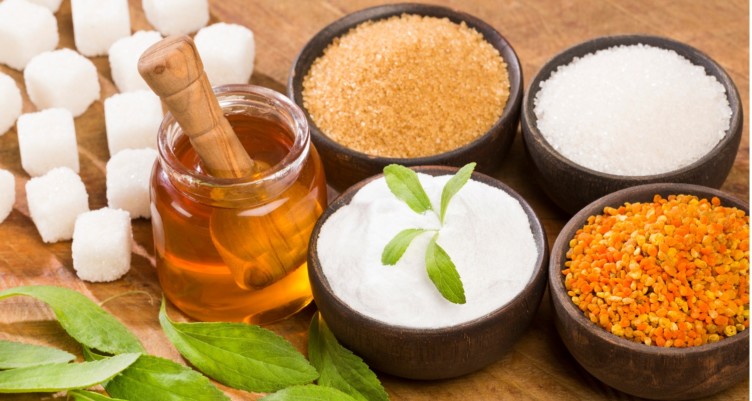naturaline
Baking With The RIGHT Sugar Substitutes
So, which is the best sugar substitute to use for low-glycemic brownies, cookies, cakes and more? Baking with erythritol and xylitol are two options that don’t give you that quick rise in blood sugar like white sugar does. Baking with sugar substitutes can also open up a whole new world, which goes well with a variety of diets.
When it comes to the right low-glycemic natural sweetener swap, it’s all about personal preference. Take into consideration what you’re baking, as well as your health goals.
Ready to find your ideal low-glycemic sugar substitute? You can choose from:
Erythritol: When baking with erythritol, use no more than ½ cup per recipe to avoid crystallization and dryness. Erythritol is best for same-day recipes, as there can be a cooling effect to the sweetness after more than one day. Keep in mind that pure erythritol contains about 60%-80% of the sweetening power of sugar.
Xylitol: Be mindful of your sensitivity to xylitol, as it’s not easy for all to digest. It bakes well for those who can tolerate it, does not caramelize and tastes delicious. Xylitol is a good candidate to use in combination with other sweeteners, too. Remember, xylitol is toxic to dogs, so keep it (and all baked goods containing it) out of Fido’s reach!
Monk fruit extract: Pure monk fruit extract is 100 to 250 times sweeter than sugar, but does not bake well in its purest form. Use it to sweeten a fat bomb, panna cotta, gelatin or any raw dessert—any time where you don’t need a lot of sugar for texture in a cold application. Note that some mainstream brands typically pair monk fruit with erythritol. (Baking with monk fruit and erythritol combinations are great for sugar-free sweets.)
Stevia: Stevia is complementary when baking with berries, in particular, and high temperatures do not affect its sweetening properties. While stevia doesn’t provide the same texture as sugar, it is one of the best sweeteners to bake with. However, keep in mind that a little goes a long way: stevia is 200 to 300 times sweeter than refined sugar.
Inulin: Derived from chicory root, inulin is a plant-based fiber that has a mild sweetness. However, inulin powder is 10 times less sweet than sugar, which is important to note when calculating your ingredients.

